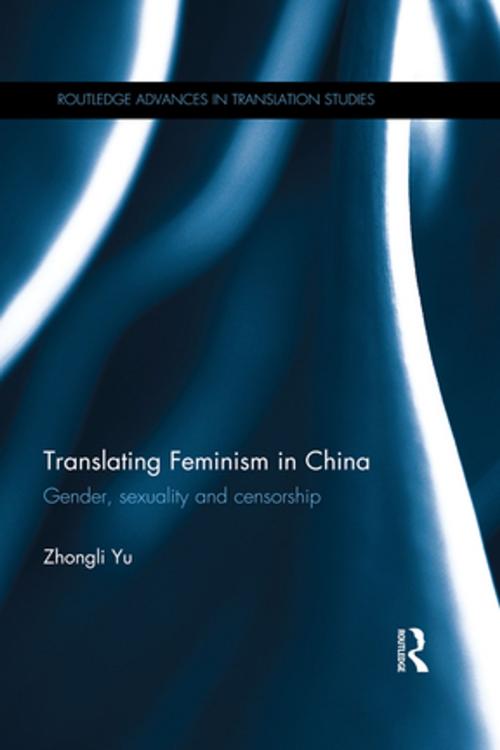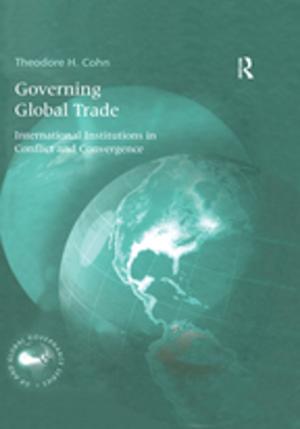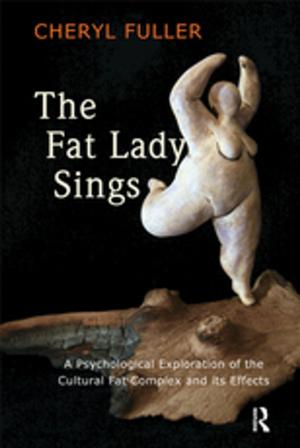Translating Feminism in China
Gender, Sexuality and Censorship
Nonfiction, Reference & Language, Language Arts, Translating & Interpreting| Author: | Zhongli Yu | ISBN: | 9781317620013 |
| Publisher: | Taylor and Francis | Publication: | June 5, 2015 |
| Imprint: | Routledge | Language: | English |
| Author: | Zhongli Yu |
| ISBN: | 9781317620013 |
| Publisher: | Taylor and Francis |
| Publication: | June 5, 2015 |
| Imprint: | Routledge |
| Language: | English |
This book explores translation of feminism in China through examining several Chinese translations of two typical feminist works: The Second Sex (TSS, Beauvoir 1949/1952) and The Vagina Monologues (TVM, Ensler 1998). TSS exposes the cultural construction of woman while TVM reveals the pervasiveness of sexual oppression toward women. The female body and female sexuality (including lesbian sexuality) constitute a challenge to the Chinese translators due to cultural differences and sexuality still being a sensitive topic in China. This book investigates from gender and feminist perspectives, how TSS and TVM have been translated and received in China, with special attention to how the translators meet the challenges. Since translation is the gateway to the reception of feminism, an examination of the translations should reveal the response to feminism of the translator as the first reader and gatekeeper, and how feminism is translated both ideologically and technically in China. The translators’ decisions are discussed within the social, historical, and political contexts. Translating Feminism in China discusses, among other issues:
- Feminist Translation: Practice, Theory, and Studies
- Translating the Female Body and Sexuality
- Translating Lesbianism
- Censorship, Sexuality, and Translation
This book will be relevant to postgraduate students and researchers of translation studies. It will also interest academics interested in feminism, gender studies and Chinese literature and culture.
Zhongli Yu is Assistant Professor of Translation Studies at the University of Nottingham Ningbo China (UNNC).
This book explores translation of feminism in China through examining several Chinese translations of two typical feminist works: The Second Sex (TSS, Beauvoir 1949/1952) and The Vagina Monologues (TVM, Ensler 1998). TSS exposes the cultural construction of woman while TVM reveals the pervasiveness of sexual oppression toward women. The female body and female sexuality (including lesbian sexuality) constitute a challenge to the Chinese translators due to cultural differences and sexuality still being a sensitive topic in China. This book investigates from gender and feminist perspectives, how TSS and TVM have been translated and received in China, with special attention to how the translators meet the challenges. Since translation is the gateway to the reception of feminism, an examination of the translations should reveal the response to feminism of the translator as the first reader and gatekeeper, and how feminism is translated both ideologically and technically in China. The translators’ decisions are discussed within the social, historical, and political contexts. Translating Feminism in China discusses, among other issues:
- Feminist Translation: Practice, Theory, and Studies
- Translating the Female Body and Sexuality
- Translating Lesbianism
- Censorship, Sexuality, and Translation
This book will be relevant to postgraduate students and researchers of translation studies. It will also interest academics interested in feminism, gender studies and Chinese literature and culture.
Zhongli Yu is Assistant Professor of Translation Studies at the University of Nottingham Ningbo China (UNNC).















